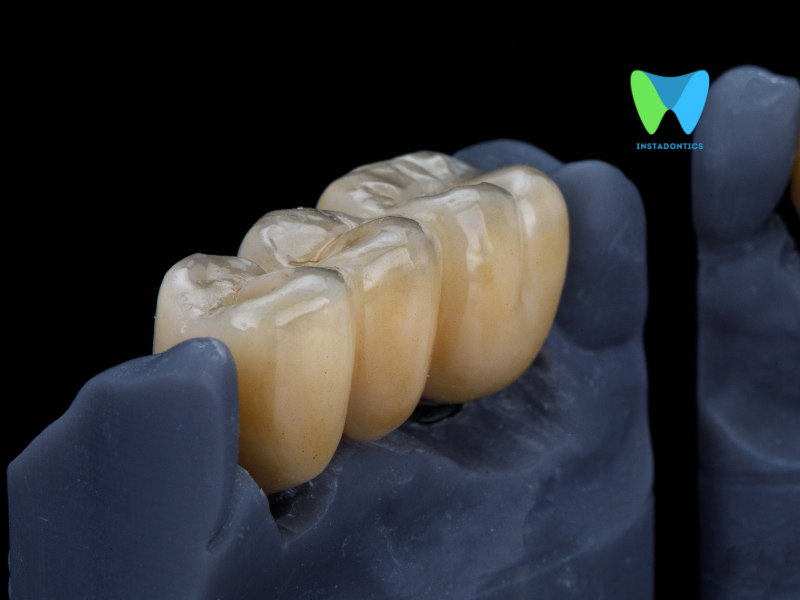Tooth sensitivity, also known as dentin hypersensitivity, is a common dental issue that affects millions of people worldwide. This condition is characterized by a sharp, temporary pain that occurs when the teeth come into contact with certain stimuli, such as hot, cold, sweet, or acidic foods and drinks. Understanding the causes, symptoms, and treatments of tooth sensitivity is crucial for maintaining optimal oral health and improving the quality of life for those affected.
What is Tooth Sensitivity?
Tooth sensitivity occurs when the dentin, the layer beneath the enamel, becomes exposed. Dentin contains tiny tubules that lead directly to the tooth’s nerve center. When these tubules are exposed due to enamel erosion or gum recession, external stimuli can reach the nerve, causing pain. This condition can affect one or several teeth and can vary in intensity from mild discomfort to severe pain.
Types and Categories of Tooth Sensitivity
Transient Sensitivity: This type occurs temporarily after dental treatments or when exposed to cold foods or beverages, usually resolving without intervention.
Chronic Sensitivity: Persistent and often arising from more deeply rooted dental problems, chronic sensitivity requires professional evaluation and treatment.
Symptoms and Signs of Tooth Sensitivity
Common Symptoms: The most frequent sign is a sudden, sharp pain in response to stimuli such as cold, heat, or sugary substances.
Uncommon Symptoms: Less typical symptoms might include constant dull aches or pain without apparent stimuli, which are indicative of more severe issues.
Causes of Tooth Sensitivity
Enamel Erosion
Enamel is the hard, protective outer layer of the tooth. Over time, acidic foods and beverages, aggressive brushing, and even certain medical conditions like acid reflux can erode the enamel, exposing the dentin beneath.
Gum Recession
Gum recession occurs when the gums pull back from the teeth, exposing the roots. This can be caused by periodontal disease, aggressive brushing, or even genetics. The roots of the teeth do not have enamel, making them more susceptible to sensitivity.
Tooth Decay and Damage
Cavities, chipped or cracked teeth can expose the dentin, leading to sensitivity. It’s essential to address any signs of decay or damage promptly to prevent further complications.
Teeth Grinding (Bruxism)
Bruxism, or teeth grinding, can wear down the enamel over time, exposing the dentin. This often occurs unconsciously during sleep and can be managed with the use of a mouthguard.
Dental Procedures
Certain dental procedures, such as teeth whitening, fillings, or crowns, can temporarily increase tooth sensitivity. This sensitivity usually subsides after a few days, but if it persists, it’s crucial to consult with a dentist.
Symptoms of Tooth Sensitivity
The primary symptom of tooth sensitivity is a sharp, sudden pain when the teeth are exposed to specific triggers. These triggers include hot or cold foods and drinks, sweet or acidic substances, and even cold air. The pain can be temporary but may indicate underlying dental issues if it persists.
Diagnosing Tooth Sensitivity
Dental Examination
A thorough dental examination is the first step in diagnosing tooth sensitivity. The dentist will review the patient’s dental history, conduct a visual inspection, and use dental tools to check for signs of enamel erosion, gum recession, and other potential causes.
X-rays and Imaging
Dental X-rays can help identify underlying issues such as cavities, cracks, or tooth damage that may not be visible during a visual examination. This imaging is crucial for a comprehensive diagnosis.
Professional Treatments for Tooth Sensitivity
Fluoride Treatments
Fluoride treatments help strengthen the enamel and reduce sensitivity. These treatments can be applied in the form of a gel, foam, or varnish during a dental visit.
Dental Sealants
Dental sealants are thin, protective coatings applied to the chewing surfaces of the teeth. They help shield the teeth from decay and sensitivity by sealing the exposed dentin.
Bonding Agents
Bonding agents can be applied to the sensitive areas of the teeth to seal the tubules and reduce pain. This treatment provides immediate relief and can last for several years.
Gum Grafts
For patients with severe gum recession, a gum graft may be recommended. This surgical procedure involves taking tissue from another part of the mouth and attaching it to the affected area to cover exposed roots.
Desensitizing Toothpaste
Desensitizing toothpaste contains compounds that help block the pain signals from the tooth’s surface to the nerve. Regular use can provide significant relief over time.
Preventive Measures for Tooth Sensitivity
Proper Brushing Techniques
Using a soft-bristled toothbrush and brushing gently can help prevent enamel erosion and gum recession. It’s also essential to avoid brushing immediately after consuming acidic foods or drinks to prevent further damage to the enamel.
Dietary Adjustments
Limiting the intake of acidic and sugary foods and beverages can help protect the enamel. Incorporating foods high in calcium, such as dairy products, can also help strengthen the teeth.
Regular Dental Visits
Regular dental check-ups and cleanings are crucial for maintaining oral health and preventing tooth sensitivity. Early detection of potential issues allows for prompt treatment and management.
Mouthguards for Bruxism
Wearing a mouthguard at night can help protect the teeth from the damaging effects of grinding and clenching. Custom-fitted mouthguards provided by a dentist offer the best protection.
Hydration
Staying well-hydrated helps maintain saliva flow, which is essential for neutralizing acids in the mouth and protecting the enamel.
Home Remedies for Tooth Sensitivity
Salt Water Rinse
A salt water rinse can help reduce inflammation and provide temporary relief from sensitivity. Mix a teaspoon of salt in a glass of warm water and rinse your mouth twice a day.
Clove Oil
Clove oil has natural analgesic properties that can help numb the pain. Apply a small amount of clove oil to a cotton ball and place it on the affected tooth for a few minutes.
Honey and Warm Water
Honey has antibacterial properties that can help reduce pain and inflammation. Mix a tablespoon of honey in a glass of warm water and rinse your mouth daily.
Garlic Paste
Garlic contains allicin, a compound with antimicrobial properties. Crush a garlic clove and mix it with a bit of salt to create a paste. Apply this paste to the affected tooth for relief.
Personal Stories: Living with Tooth Sensitivity
Real-life experiences can provide valuable insights into managing tooth sensitivity. Many individuals have successfully reduced their symptoms by following preventive measures and seeking professional treatments.
Tooth sensitivity can significantly impact daily life, but it is manageable with the right approach. Understanding the causes, symptoms, and treatments is essential for maintaining optimal oral health. Regular dental visits, proper oral hygiene, and preventive measures can help reduce sensitivity and improve overall dental well-being. If you experience persistent tooth sensitivity, consult with a dental professional for a comprehensive evaluation and personalized treatment plan.
More:



